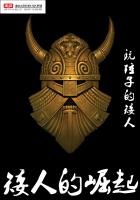a city very proper for this purpose, and which lay upon the Bubastic channel, but with regard to a certain theologic notion was called Avaris, this he rebuilt, and made very strong by the walls he built about it, and by a most numerous garrison of two hundred and forty thousand armed men whom he put into it to keep it. Thither Salatis came in summer time, partly to gather his corn, and pay his soldiers their wages, and partly to exercise his armed men, and thereby to terrify foreigners. When this man had reigned thirteen years, after him reigned another, whose name was Beon, for forty-four years; after him reigned another, called Apachnas, thirty-six years and seven months; after him Apophis reigned sixty-one years, and then Janins fifty years and one month; after all these reigned Assis forty-nine years and two months. And these six were the first rulers among them, who were all along ****** war with the Egyptians, and were very desirous gradually to destroy them to the very roots. This whole nation was styled Hycsos, that is, Shepherd-kings: for the first syllable Hyc, according to the sacred dialect, denotes a king, as is Sos a shepherd; but this according to the ordinary dialect;and of these is compounded Hycsos: but some say that these people were Arabians." Now in another copy it is said that this word does not denote Kings, but, on the contrary, denotes Captive Shepherds, and this on account of the particle Hyc; for that Hyc, with the aspiration, in the Egyptian tongue again denotes Shepherds, and that expressly also; and this to me seems the more probable opinion, and more agreeable to ancient history. [But Manetho goes on]: "These people, whom we have before named kings, and called shepherds also, and their descendants," as he says, "kept possession of Egypt five hundred and eleven years." After these, he says, "That the kings of Thebais and the other parts of Egypt made an insurrection against the shepherds, and that there a terrible and long war was made between them." He says further, "That under a king, whose name was Alisphragmuthosis, the shepherds were subdued by him, and were indeed driven out of other parts of Egypt, but were shut up in a place that contained ten thousand acres; this place was named Avaris." Manetho says, "That the shepherds built a wall round all this place, which was a large and a strong wall, and this in order to keep all their possessions and their prey within a place of strength, but that Thummosis the son of Alisphragmuthosis made an attempt to take them by force and by siege, with four hundred and eighty thousand men to lie rotund about them, but that, upon his despair of taking the place by that siege, they came to a composition with them, that they should leave Egypt, and go, without any harm to be done to them, whithersoever they would; and that, after this composition was made, they went away with their whole families and effects, not fewer in number than two hundred and forty thousand, and took their journey from Egypt, through the wilderness, for Syria; but that as they were in fear of the Assyrians, who had then the dominion over Asia, they built a city in that country which is now called Judea, and that large enough to contain this great number of men, and called it Jerusalem. (9)Now Manetho, in another book of his, says, "That this nation, thus called Shepherds, were also called Captives, in their sacred books." And this account of his is the truth; for feeding of sheep was the employment of our forefathers in the most ancient ages (10) and as they led such a wandering life in feeding sheep, they were called Shepherds. Nor was it without reason that they were called Captives by the Egyptians, since one of our ancestors, Joseph, told the king of Egypt that he was a captive, and afterward sent for his brethren into Egypt by the king's permission. But as for these matters, I shall make a more exact inquiry about them elsewhere. (11)15. But now I shall produce the Egyptians as witnesses to the antiquity of our nation. I shall therefore here bring in Manetho again, and what he writes as to the order of the times in this case; and thus he speaks: "When this people or shepherds were gone out of Egypt to Jerusalem, Tethtoosis the king of Egypt, who drove them out, reigned afterward twenty-five years and four months, and then died; after him his son Chebron took the kingdom for thirteen years; after whom came Amenophis, for twenty years and seven months; then came his sister Amesses, for twenty-one years and nine months; after her came Mephres, for twelve years and nine months; after him was Mephramuthosis, for twenty-five years and ten months; after him was Thmosis, for nine years and eight months; after him came Amenophis, for thirty years and ten months; after him came Orus, for thirty-six years and five months; then came his daughter Acenchres, for twelve years and one month; then was her brother Rathotis, for nine years; then was Acencheres, for twelve years and five months; then came another Acencheres, for twelve years and three months; after him Armais, for four years and one month; after him was Ramesses, for one year and four months; after him came Armesses Miammoun, for sixty-six years and two months; after him Amenophis, for nineteen years and six months; after him came Sethosis, and Ramesses, who had an army of horse, and a naval force. This king appointed his brother, Armais,, to be his deputy over Egypt." [In another copy it stood thus: After him came Sethosis, and Ramesses, two brethren, the former of whom had a naval force, and in a hostile manner destroyed those that met him upon the sea; but as he slew Ramesses in no long time afterward, so he appointed another of his brethren to be his deputy over Egypt.] He also gave him all the other authority of a king, but with these only injunctions, that he should not wear the diadem, nor be injurious to the queen, the mother of his children, and that he should not meddle with the other concubines of the king; while he made an expedition against Cyprus, and Phoenicia, and besides against the Assyrians and the Medes. He then subdued them all, some by his arms, some without fighting, and some by the terror of his great army; and being puffed up by the great successes he had had, he went on still the more boldly, and overthrew the cities and countries that lay in the eastern parts. But after some considerable time, Armais, who was left in Egypt, did all those very things, by way of opposition, which his brother had forbid him to do, without fear; for he used violence to the queen, and continued to make use of the rest of the concubines, without sparing any of them; nay, at the persuasion of his friends he put on the diadem, and set up to oppose his brother. But then he who was set over the priests of Egypt wrote letters to Sethosis, and informed him of all that had happened, and how his brother had set up to oppose him: he therefore returned back to Pelusium immediately, and recovered his kingdom again. The country also was called from his name Egypt; for Manetho says, that Sethosis was himself called Egyptus, as was his brother Armais called Danaus."16. This is Manetho's account. And evident it is from the number of years by him set down belonging to this interval, if they be summed up together, that these shepherds, as they are here called, who were no other than our forefathers, were delivered out of Egypt, and came thence, and inhabited this country, three hundred and ninety-three years before Danaus came to Argos;although the Argives look upon him (12) as their most ancient king Manetho, therefore, hears this testimony to two points of the greatest consequence to our purpose, and those from the Egyptian records themselves. In the first place, that we came out of another country into Egypt; and that withal our deliverance out of it was so ancient in time as to have preceded the siege of Troy almost a thousand years; but then, as to those things which Manetbo adds, not from the Egyptian records, but, as he confesses himself, from some stories of an uncertain original, I will disprove them hereafter particularly, and shall demonstrate that they are no better than incredible fables.
同类推荐
热门推荐
存在的意义只是为了被欺负
欺负人,从来都是需要付出代价的,然而一直以欺负柠儿取乐的暴力男就是不相信。直到暴力男经历了一场车祸,上天给他三年期限回去偿还。所偿的对象就是慕柠忻。期间又会激起怎样的波澜?假戏真婚:落魄甜妻很霸气
被赶出家门,一夕落魄,仅仅在一夜之间,她没了家。一场宴会,她陷于困境,从容应对,他袖手旁观,另眼相看。“和我结婚,这可是个稳赚不赔的买卖。”“先生,结婚可以,先签了这个。”他需要一场假婚姻,她需要一个挡箭牌。彼此一起,也只为各取所需。可是,逢场作戏,谁却深陷其中,谁却丢失初心…或许,早已命中注定。















